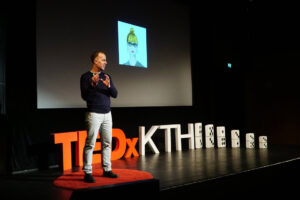In our culture today, it is easy to assume that the proper frame for going about our working life is to pursue “climbing mode” as early and aggressively as possible. When I say “climbing mode,” I mean striving to move up the ladder of success, focusing on achievement and advancement. For many, this notion is so ensconced in our culture that it is invisible, unconscious, and wholly taken for granted.
But is it right? Is it helpful or harmful when it comes to living a good life and crafting good work? The assumption of course is that it is right and helpful. That by focusing on “climbing mode” one will build a financial foundation that will lead to success, freedom, and happiness.
No doubt there can be great value in climbing mode. When we focus on climbing this “ladder,” there are many benefits that can accrue:
- making more money (which can reduce financial stress, then lead to financial independence and freedom, and perhaps even wealth creation, which can lead to enjoyment, generosity, and more)
- obtaining status and prestige
- obtaining new opportunities
- learning many things along the way as we encounter obstacles and solve problems
- growing and developing as professionals, and perhaps as people
- feeling a sense of satisfaction for overcoming challenges and achieving goals
Yes, I am a fan of climbing mode in part for all the benefits it can bring but also for the remarkable flow states states one can achieve while applying oneself toward a difficult task.
But for all the benefits of “climbing mode,” there are also down-sides. The problem is that they can be not only severe but also overlooked, a double danger that can compound over time. I see a few major drawbacks:
Burnout
Burnout has been called an epidemic in modern times among working professionals in many cultures. It often comes as a result of work addiction. Many of us have experienced it, and in my work with emerging leaders and entrepreneurs and young changemakers, I see it over and over again even among young people.
Excessive Self-Reliance
If we are busy climbing our ladder, it is safe to assume that most of our peers are also buy climbing their own ladders. Fair enough, but this can pull us away from the meaningful connections that are an essential part of a good life (and enjoyable work). Going it alone is bound to disappoint.
Self-Aggrandizement
The whole point of climbing mode, for many, is simple: to get to the top. So that I can be on top. And so that I can get what I want. So that I can have wealth, or status, or things. It’s all about me and what I can get. In other words, it can become an ego trip of epic proportions. And, oddly enough, this focus on me and what I want to get so that I can be happy, can make me, well, miserable.
There are many reasons for that, including our need for meaningful relationships, the psychological phenomenon of “hedonic adaptation” (our tendency to quickly return to a relatively stable level of happiness despite major positive or negative events or life changes), and our longing for purpose and contribution in life.
We have a family friend who spent decades of her life in “climbing mode” (to great effect, by the way, with a nice family, a nice home in the mountains, and a stellar career with an impressive resume), only to feel, after all that time:
“I lost a lot of time and wasted a lot of energy by running after achievements to validate myself.
It was all about how many things I could have on my resume… trying to live up to others’ expectations of me.
It was like living on junk food.”
And then the kicker:
“It took me sixty years to trust myself.”
Yes, one of the costs of climbing mode is that we can lose ourselves in the process, no longer trusting our inner voice about who we are and what we long for, and instead adopting someone else’s view of the good life.

“Some time when the river is ice ask me mistakes I have made….
Ask me whether what I have done is my life.”
-William Stafford
One of the problems here is that the pressures we feel when we are young can steer us in a direction that does not serve us well when we get older. And that it feels harder and harder to make changes in the meantime due to the systems that we work in and the “switching costs” that keep us in place.
The solution, though, is not to abandon climbing mode altogether. Again, great value can be found there.
The solution, I think, is to embrace something else: “discover mode,” which is learning about who we are and what we can do (e.g., values, strengths, passions, aspirations).
It turns out the sages of old were right: one of the most important things we can do is to know ourselves. This ancient wisdom from East and West is something that feels like it is becoming lost in the modern world.
But let’s be clear: discover mode is not a replacement for climbing mode.
No, instead I think it is something that should come first. We should begin by doing the inner work of discovery, giving us direction for our climb.
And then we can throw ourselves into climbing mode.
But it does not end there. Seasons of life will come and go, and we will change, as will the people around us and our circumstances. So we will need to go back into discover mode again, and then climbing mode again. And so on. It becomes an iterative process of action and reflection, of “warrior and sage.”
Yes, there is a time and a place for climbing mode. But which ladder will you climb, and how will you decide? If you begin instead with discover mode, and then remember to flex between these modes, I think it will serve you well.
Wishing you well with it.
–Gregg
Note: You can also watch my TEDx talk on this topic of “discover mode” vs. “climbing mode.”
Tools for You
- Crafting Your Life & Work online course to help you design your next chapter and create a life and work you love.
- Traps Test (Common Traps of Living) to help you identify what’s getting in the way of your happiness and quality of life
- Quality of Life Assessment to help you discover your strongest areas and the areas that need work and then act accordingly
Related Articles
++++++++++++++++++++++++++++++
Gregg Vanourek is a writer, teacher, TEDx speaker, and coach on leadership and personal development. He is co-author of three books, including LIFE Entrepreneurs: Ordinary People Creating Extraordinary Lives (a manifesto for living with purpose and passion) and Triple Crown Leadership: Building Excellent, Ethical, and Enduring Organizations (a winner of the International Book Awards). Check out his Crafting Your Life & Work online course or get his monthly newsletter. If you found value in this article, please forward it to a friend. Every little bit helps!





